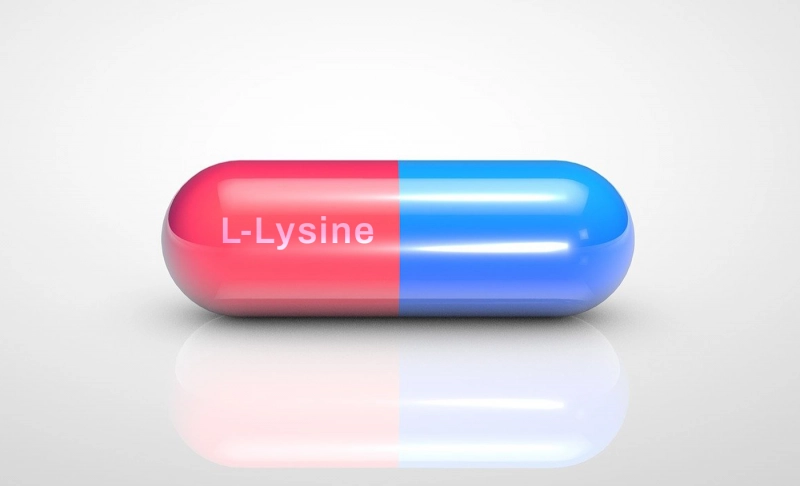By: Annie Priya
October 20 2021

FDA has not approved the Lysine drug against COVID-19 as it is listed as a misbranded product that infringes the Federal Food, Drug, and Cosmetic Act.
FDA has not approved the Lysine drug against COVID-19 as it is listed as a misbranded product that infringes the Federal Food, Drug, and Cosmetic Act.Lysine is an amino acid that serves as a protein-building ingredient. Meat, fish, dairy, eggs, and some plants, such as soy, are all excellent sources of Lysine. WebMD states that it is used to help people with diabetes, athletic performance, and various other things. Lysine also suppresses the herpes virus's proliferation; however, no good scientific evidence supports these assertions. The claim that 2000 mg of Lysine protects against COVID-19 has recently made the rounds on social media. It is, however, inaccurate. U.S. Food and Drug Administration has listed Lysine as an unapproved and misbranded product against COVID-19. On December 21, 2020, FDA issued a warning letter claiming that Flu Immune Drops, L-Lysine, Lysine Extra, and Monolaurin are unapproved and misbranded drugs sold in violation of ''section 505(a) of the Federal Food, Drug, and Cosmetic Act (FD&C Act), 21 U.S.C. § 355(a).'' Furthermore, delivery of these products into interstate commerce is prohibited under ''sections 301(a) and (d) of the FD&C Act, 21 U.S.C. § 331(a) and (d).'' Even PubMed noted that providing additional micronutrients or conditional amino acids may impact COVID-19-related outcomes is uncertain and lacking scientific evidence. Therefore, we conclude that the Lysine drug is not recommended against COVID-19 by health agencies like the World Health Organization, including the FDA, so the claim is false. The COVID-19 pandemic has given rise to a lot of potentially dangerous misinformation. For reliable advice on COVID-19, including symptoms, prevention, and available treatment, please refer to the World Health Organization or your national healthcare authority.